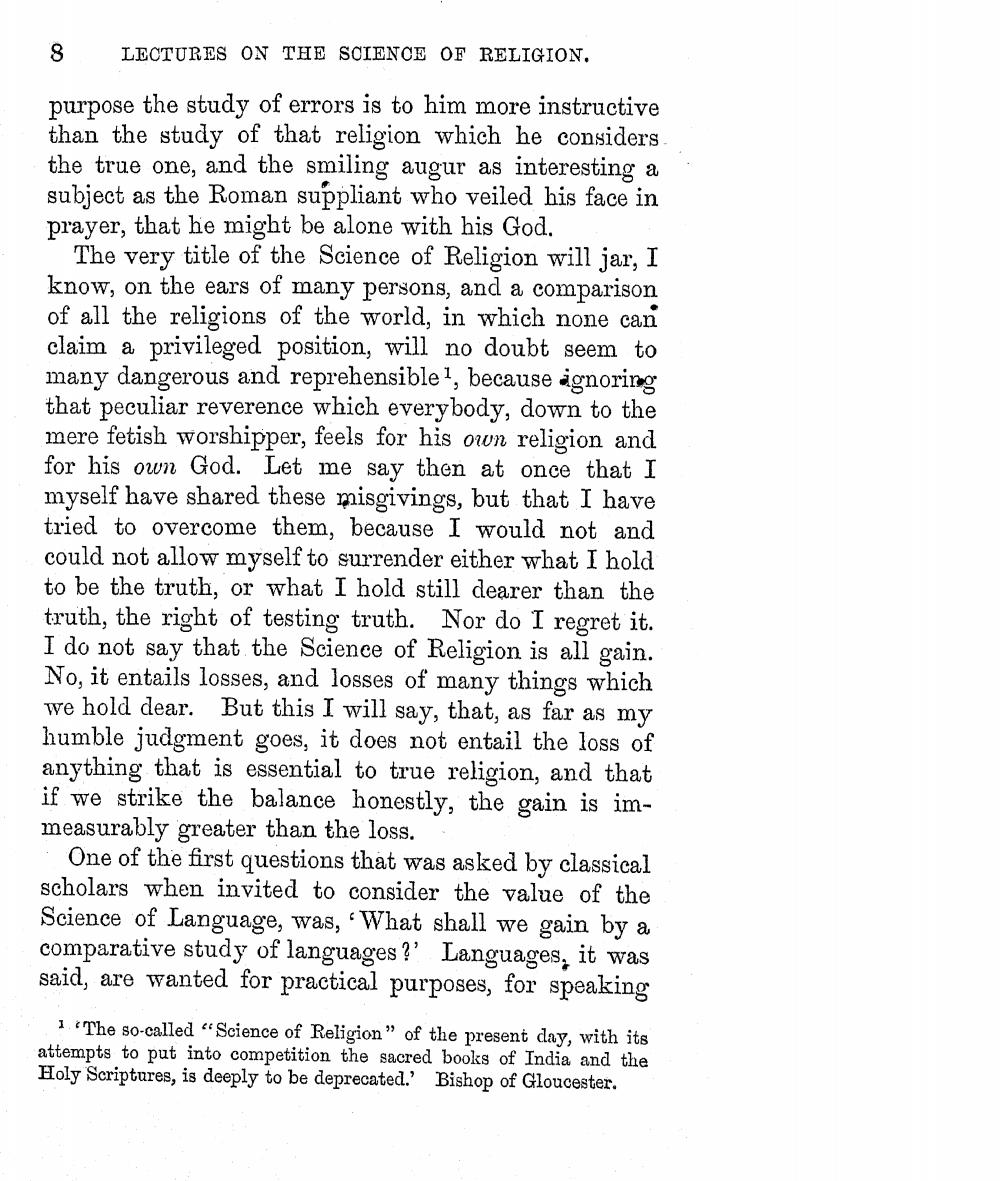________________
LECTURES ON THE SCIENCE OF RELIGION
purpose the study of errors is to him more instructive than the study of that religion which he considers the true one, and the smiling augur as interesting a subject as the Roman suppliant who veiled his face in prayer, that he might be alone with his God. .
The very title of the Science of Religion will jar, I know, on the ears of many persons, and a comparison of all the religions of the world, in which none can claim a privileged position, will no doubt seem to many dangerous and reprehensible1, because agnoring that peculiar reverence which everybody, down to the mere fetish worshipper, feels for his own religion and for his own God. Let me say then at once that I myself have shared these misgivings, but that I have tried to overcome them, because I would not and could not allow myself to surrender either what I hold to be the truth, or what I hold still dearer than the truth, the right of testing truth. Nor do I regret it. I do not say that the Science of Religion is all gain. No, it entails losses, and losses of many things which we hold dear. But this I will say, that, as far as my humble judgment goes, it does not entail the loss of anything that is essential to true religion, and that if we strike the balance honestly, the gain is immeasurably greater than the loss.
One of the first questions that was asked by classical scholars when invited to consider the value of the Science of Language, was, 'What shall we gain by a comparative study of languages?' Languages, it was said, are wanted for practical purposes, for speaking
1 The so-called "Science of Religion” of the present day, with its attempts to put into competition the sacred books of India and the Holy Scriptures, is deeply to be deprecated.' Bishop of Gloucester.




